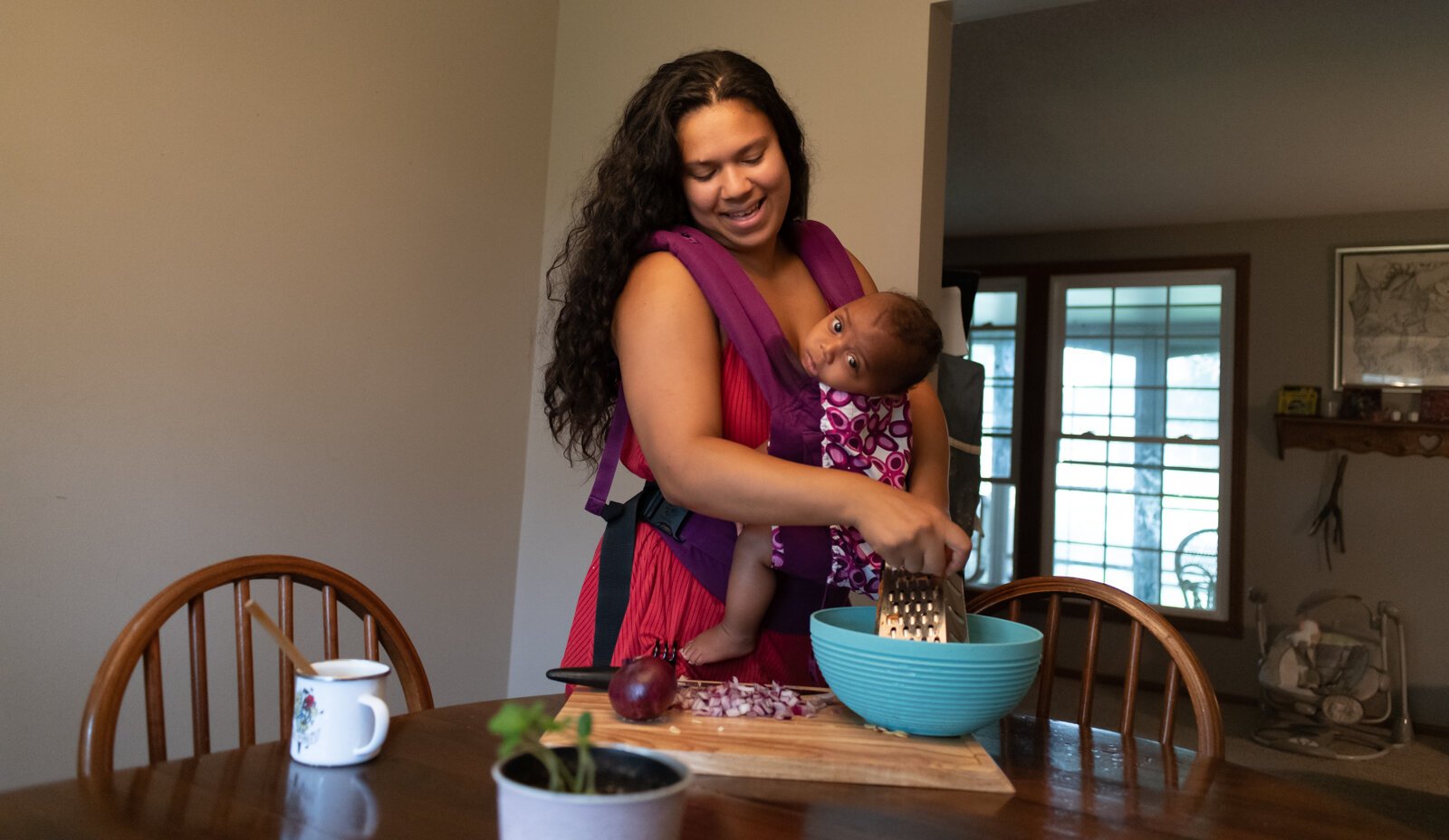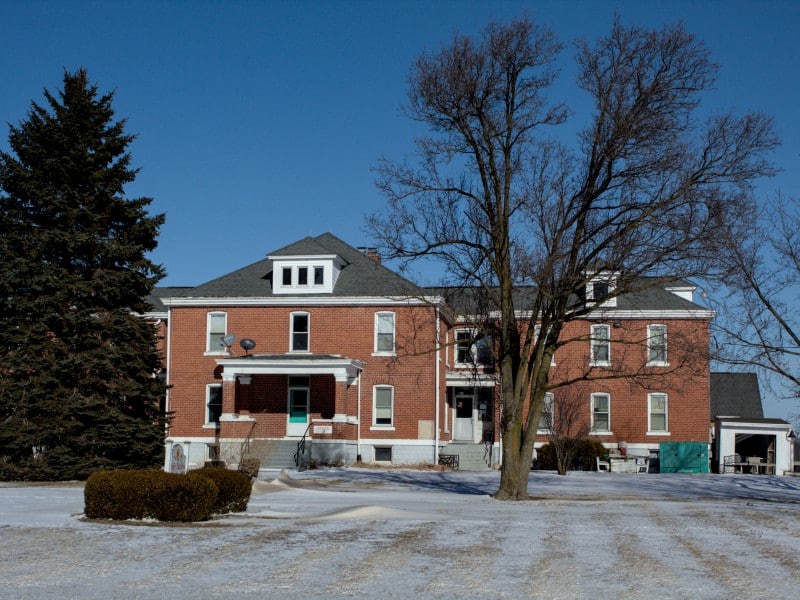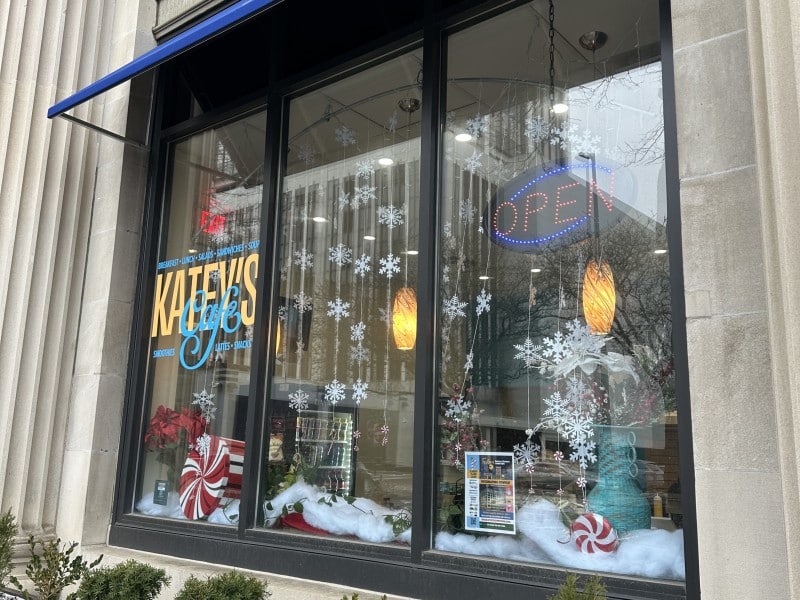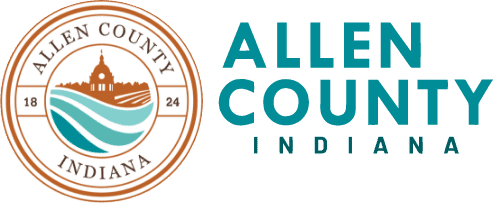Voices of South East: This Fort Wayne mother is helping others navigate postpartum life
Asha Hernandez shares her business helping new moms, like herself, manage postpartum depression, which disproportionately affects BIPOC women.
When Asha Hernandez-Bailey of Fort Wayne was pregnant, she had a specific idea about how she thought the process would go.
Her mother had a natural childbirth, and her stepmother gave birth to six children at home. But when Hernandez-Bailey’s son was born in 2014, her own birth and postpartum experience did not go as planned.
“Things don’t always go smoothly,” Hernandez-Bailey says. “It just went from my natural birth plan to an emergency C-section. Not only was the birth traumatic, so was postpartum.”
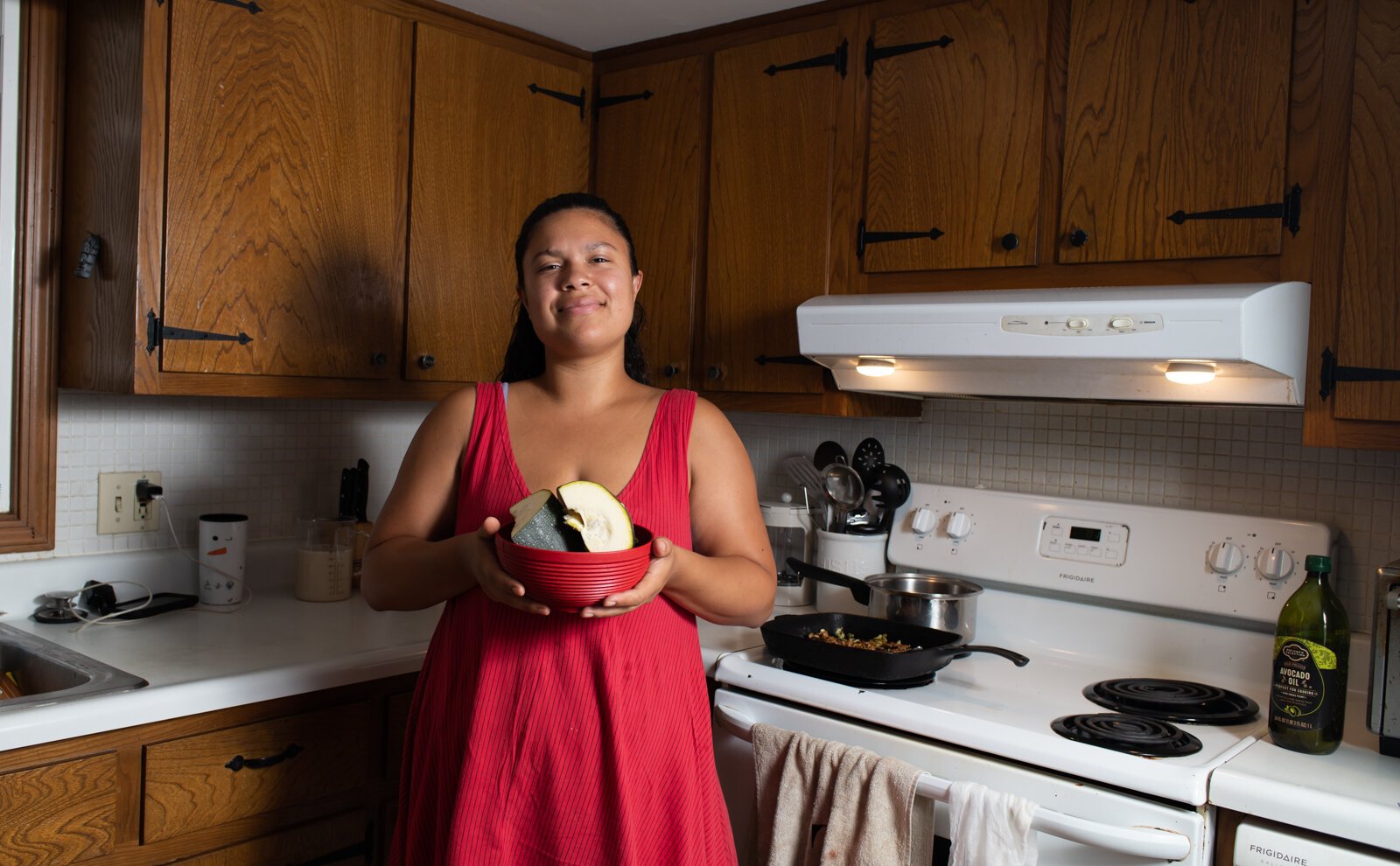
Hernandez-Bailey found herself trying to navigate healing from a major surgery while also caring for a newborn and breastfeeding. Although she didn’t realize it at the time, these challenges would lead to the birth of something else in her life: A business designed to help new moms, like herself, cope with postpartum depression, which disproportionately affects BIPOC women.
“Postpartum is really not prepared and planned for enough,” Hernandez-Bailey says. “I don’t think women realize how vital it is until they are there. But at that point, you can’t do as much.”
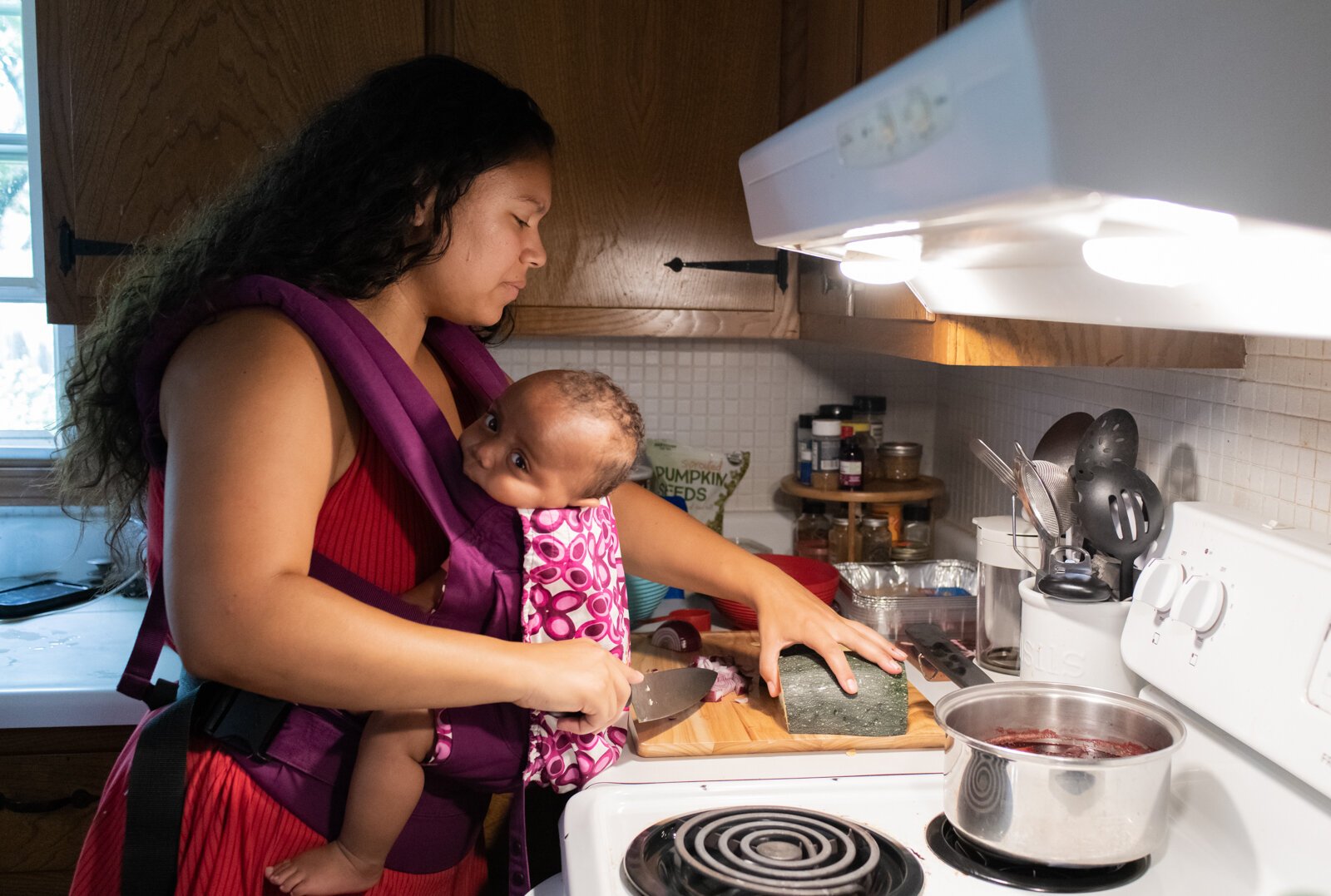
The Cleveland Clinic reports that while 50-70 percent of new mothers experience a brief period of “baby blues” after delivery, up to 15 percent of these women experience a more serious postpartum depression (PPD). Women of Color are at greater risk for PPD than white mothers and less likely to receive treatment.
The COVID-19 pandemic is exacerbating these disparities.
Hernandez-Bailey’s business, known as Cocina Cura offers classes, in-home services, and healing foods for the postpartum period and beyond, according to her website. She primarily caters to mothers on the South East side of Fort Wayne and its surrounding areas.
Input Fort Wayne previously reported that in 2017, Allen County’s infant mortality rate (IMR) was 7.3 deaths per 1,000 live births, which is worse than the national rate of 5.8. But in the 46806 zip code of South East Fort Wayne, the IMR (calculated 2013-2017) was more than double that statistic, at 15.4 deaths per 1,000 live births—making it the fourth highest IMR in the state.
With this data in mind, Hernandez-Bailey is taking what she learned and felt during her own pregnancy and using that knowledge to support mothers and families.
“Looking back, I see all the things I could have done to have the support I needed, but I didn’t know what I needed at the time,” she says.
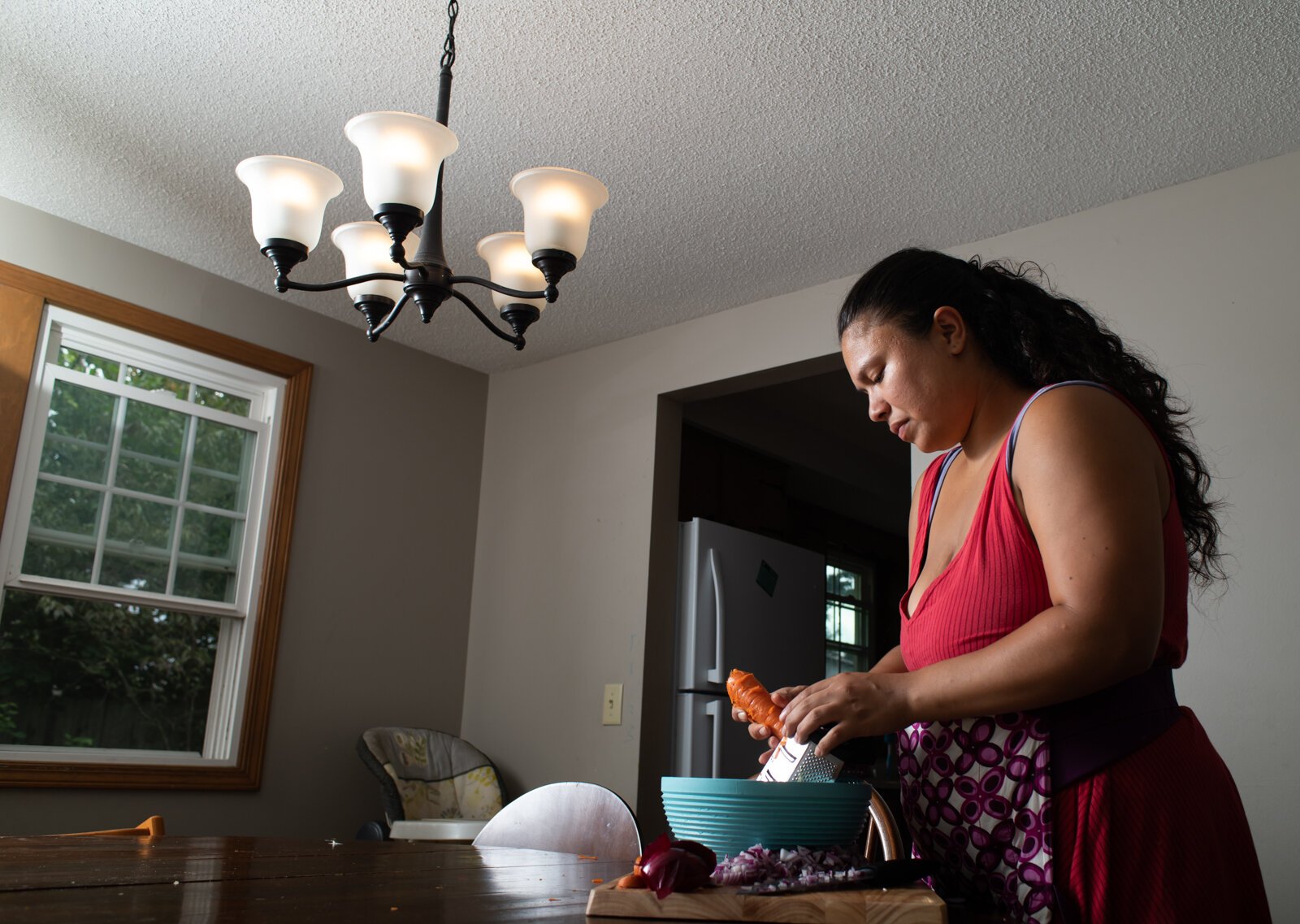
When Hernandez-Bailey first developed her business concept, she initially wanted to be a doula. In 2020, she became a certified Ayurvedic Postpartum Caregiver after taking courses at the Center for Sacred Window Studies. These courses are specifically designed for postpartum caregivers and inspired by Ayurvedic Tradition, which is a holistic approach to healing.
Hernandez-Bailey says the courses are from original teachings about how women should be cared for during their pregnancy journeys through diet, massage, and emotional support.
“After you have a baby, your body has so much healing to do, and I don’t think people think about that,” Hernandez-Bailey says. “There is a wound in your body. There’s so much openness and so much your body has to do to return back to normal.”
After taking the course, she started offering free meals to women who had recently given birth. Hernandez-Bailey connected with Woods Edge Family Farm, which sells produce at the Parkview Farmers Market, and the owners agreed to donate fresh food weekly.
In July 2020, she provided meals based on what she learned moms should eat postpartum. Hernandez-Bailey reached out to local moms through Facebook about meal preparation and education. She also received orders by word of mouth. These meals ended in December 2020, when she became pregnant with her fourth child, and she took a break from the business.
Now, Hernandez-Bailey is back to offering postpartum planning services, including dietary coaching, which can be done during pregnancy or after. She also offers in-home cooking.
“The biggest thing for me right now is figuring out how I can be as accessible as possible,” she says. “I feel that everyone needs to have access to this. Everyone needs to be cared for, eat well, and have a healing post-partum experience.”
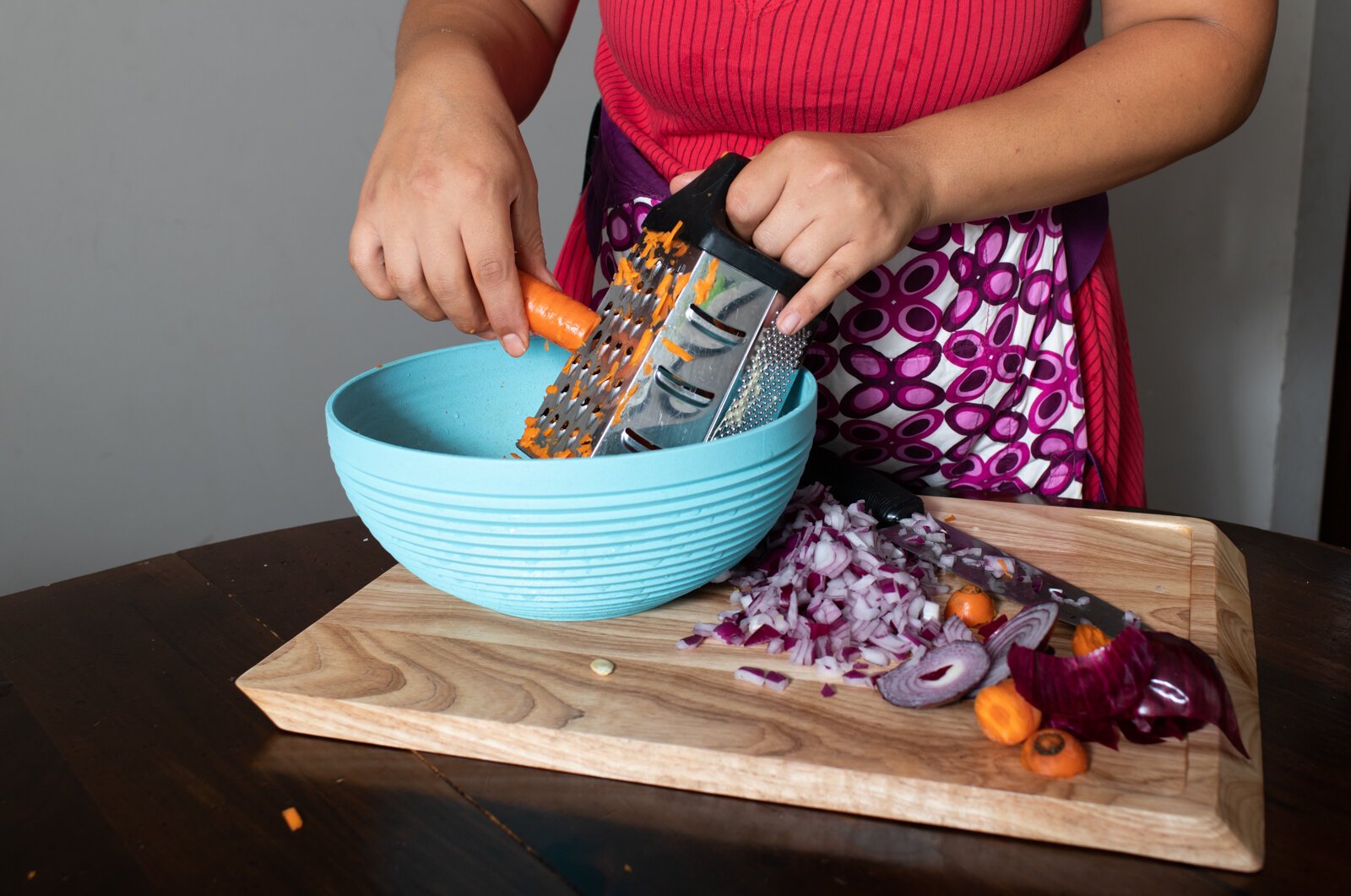
Hernandez-Bailey says her menu is “pay as you can.” Her main goal is to be affordable, but also sustainable, while providing meals with seasonal, local foods.
“I’m willing to meet people where they are at in terms of cost,” she says. “Ideally, I want to secure some grant funding in the future so that people can have full accessibility. I don’t want finances to be a limitation for people.”
Hernandez-Bailey will prepare meals at her home for delivery or go to clients’ homes to cook meals for postpartum mothers. She will also help with creating meal plans.
Speaking of planning, Hernandez-Bailey says it’s never too early in your pregnancy or family planning process to start thinking about postpartum care.
“You ideally want to spend time during pregnancy planning for what that might look like,” she says. “That involves meals and who will help you get everything done on a daily basis.”
Along with her own services, she encourages expectant mothers to utilize the people who are already in their family circles to help after having a baby.
“The initial time for postpartum is six weeks to three months, but it takes so much longer for a family to adjust and for a mom to get the hang of caring for a new baby while adjusting to a new normal,” she says. “As much support as possible will make it so much easier for everyone involved.”
Looking to the future, Hernandez-Bailey wants to open a cafe to expand her business and meet the needs of the community she serves. She believes her services should be accessible to everyone, but to do that, she needs funding. Her hope is that people will spread the word about Cocina Cura so more families are aware of what is available to them.
“Mothers have a lot on our plates,” Hernandez-Bailey says. “Whatever we can do to make that easier needs to be done.”
Learn more
Hernandez-Bailey can be reached via email at cocinacura@gmail.com or on the Cocina Cura Facebook page.
This story is a part of Input Fort Wayne’s Voices of South East series, running from August-September 2021 and funded by the Foellinger Foundation. For more information, read the first story in the series.

